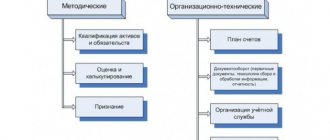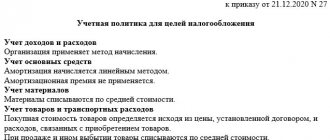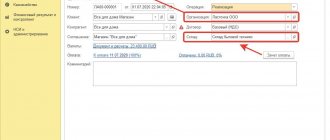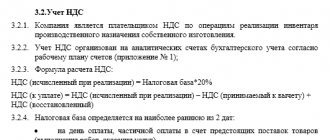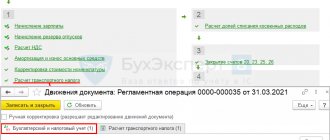What is PBU “Accounting Policy”
To begin with, let us remember that the legal regulation of accounting (hereinafter referred to as accounting) in the Russian Federation is represented by several levels:
Art. 21 of Law No. 402-FZ defines the following structure of BU regulatory documentation:
Until federal and industry accounting standards are drawn up and given legislative force, the regulatory framework developed before the entry into force of Law No. 402-FZ is in force (information of the Ministry of Finance of the Russian Federation No. PZ-10/2012 “On the entry into force of the law of December 6, 2013”) 2011 No. 402-FZ “On Accounting”).
Starting in 2021, several new federal standards come into force. The most used is FSBU 5/2019 “Inventories”, which replaces PBU 5/01. ConsultantPlus experts explained how to apply the new Federal Accounting Standards in practice and what nuances to take into account when making changes to the accounting policy for 2021. Get free demo access to K+ and go to the ready-made solution to find out all the details of the procedure.
PBU “Accounting Policies” is one of the accounting provisions that regulate the procedure for drawing up and applying accounting policies in an organization. This PBU has serial number 1, the first edition of the PBU “Accounting Policy” (PBU 1/98) was approved by order of the Ministry of Finance of the Russian Federation dated December 9, 1998 No. 60n. Currently, PBU 1/2008 is in force, approved by order of the Ministry of Finance of Russia dated October 6, 2008 No. 106n.
The norms of PBU “Accounting Policies of an Organization” apply to all legal entities, except for credit institutions and budgetary institutions - they draw up accounting policies for other legal acts (clause 1 of PBU 1/2008).
Sample simplified tax system
Download for free: Enterprise accounting policy for 2013 on USN.doc (for 2018-2019, it needs to be corrected, but mostly suitable) Word (73 kb). You must select the options suggested in the sample.
: Accounting policy of the enterprise for 2013 on the simplified tax system.doc (for 2018-2019 it needs to be corrected, but basically it’s suitable) Word (73 kb). You must select the options suggested in the sample.
Download for free: Accounting policy of the organization for 2013 on the simplified tax system (with options).doc (for 2018-2019 it needs to be corrected, but mostly suitable) Word (73 kb). You must select the options suggested in the sample.
: Accounting policy of the organization for 2013 on the simplified tax system (with options).doc (for 2018-2019, it needs to be corrected, but mostly suitable) Word (73 kb). You must select the options suggested in the sample.
What is accounting policy
Accounting policy (hereinafter referred to as UP) is a set of methods for maintaining accounting by an organization (Clause 1, Article 8 of Law No. 402-FZ). UP are required to be compiled by all economic entities, except for those exempt from the obligation to maintain accounting: individual entrepreneurs, branches or representative offices of a foreign company - provided that they keep records of income and expenses in accordance with other legal acts of the Russian Federation (clause 2 of article 6 of law No. 402-FZ ).
Note! Unlike accounting, tax accounting (TA) is mandatory for all taxpayers - both legal entities and individual entrepreneurs, regardless of the taxation regime. Therefore, the UE for the purposes of NU is made up of all economic entities (clause 2 of article 11, article 313 of the Tax Code of the Russian Federation). Entrepreneurs can draw up the UE for accounting purposes at their own request, but are not required to do so. In the following, in the article we will consider the issues of drawing up and designing the UE only for accounting purposes.
Accounting policies are drawn up not only for the purposes of accounting and national accounting, but also for the needs of management accounting - you will find an approximate structure of such an accounting policy in the article “Accounting policies for management accounting purposes .
Economic entities draw up UP independently on the basis of regulatory legal acts according to accounting regulations. The company chooses accounting methods from those established by federal standards, and if a situation arises that is not regulated by the federal standard, then it is allowed to develop an accounting method independently.
The latest changes made to the text of PBU 1/2008 (Order of the Ministry of Finance of Russia dated April 28, 2017 No. 69n) established the order of preferences in choosing a model for an independently developed accounting method (clause 7.1 of PBU 1/2008):
- rules contained in IFRS standards;
- analogies available in Russian standards;
- recommendations given on this issue.
The UE is applied consistently from year to year. Changes made to the UP must be effective from the beginning of the next calendar year. Changing the UE during the year is allowed in exceptional cases:
- changes in the legislation of the Russian Federation;
- the use of other methods of accounting in order to generate the most reliable information about accounting objects;
- change in the conditions of the company’s activities (clause 5, article 8 of law No. 402-FZ).
In practice, changes and additions to the management program are of two types:
- actual changes in the management program (for example, in connection with changes in legislation), the consequences of which are reflected in accounting and reporting in accordance with legal requirements, and in the absence of such requirements - retrospectively;
- additions made to the management program (for example, when developing a new line of business) - they are introduced and are in effect from the moment it became necessary. And in accounting and reporting they are reflected prospectively.
For more information about the procedure for making changes to the accounting policy, read the article “When and how a change in accounting policy should be introduced.”
Contents of PBU “Accounting policies of the organization”
PBU 1/2008 consists of four sections.
Section I is devoted to general information about the normative act itself and the terminology used below.
What to pay attention to:
- PBU applies only to legal entities, with the exception of credit and budget organizations. All companies that are subject to the PBU must comply with the regulations regarding the formation of the UP; in terms of disclosure of information about the provisions of the CP, its changes and other aspects provided for in Section IV of PBU 1/2008 - only companies that publish accounting reports.
- Branches and divisions of foreign legal entities on the territory of the Russian Federation can draw up UE either according to the rules of PBU 1/2008, or according to the rules of the country of origin, but then they should not contradict IFRS (clause 1 of PBU 1/2008).
- Methods of maintaining accounting include methods of grouping, assessing the facts of economic activity, repaying the value of assets, organizing document flow and processing information, inventory, using accounts and registers of accounting (clause 2 of PBU 1/2008).
Section II contains detailed instructions for the formation of the UP and a checklist of what should be in the UP.
What to pay attention to:
- The UP is compiled by the chief accountant or the person responsible for maintaining accounting records in the company, and is approved by the manager by order or directive (clause 4 of PBU 1/2008).
- UP is based on the following assumptions: property isolation, continuity of activity, consistency of application of UP and time certainty of business operations (clause 5 of PBU 1/2008).
- The requirements for UP are: completeness, timeliness, prudence, consistency, rationality of reflecting business operations, priority of content over form (clause 5 of PBU 1/2008).
- companies that are allowed to use simplified accounting methods can keep records without double entry (clause 6.1 of PBU 1/2008) and, when independently choosing an accounting method, be guided only by the requirement of rationality (clause 7.2 of PBU 1/2008).
- If you have just recently created a company or reorganized an existing one, then the UP for the BU should be formed within 90 days from the date of state registration, and after approval, the UP is considered valid from the moment of state registration of the company.
- The methods of maintaining accounting records recorded in the UP are applied from the beginning of the calendar year following the year of approval of the UP, by all divisions of the legal entity, even if they are allocated to a separate balance sheet (clause 9 of PBU 1/2008).
Section III is devoted to changes in the CP.
What to pay attention to:
- Changes to the accounting policies come into force from the beginning of the next reporting year or in exceptional cases, which were discussed in the section “What are accounting policies”.
- Changes to the management program are made by instructions or orders of the manager.
- The approval of methods for conducting accounting for new business operations that are significantly different from those carried out by the organization previously, or that arose for the first time in the company’s activities (clause 10 of PBU 1/2008) is not considered a change in the CP.
- The results of changes in the UE are expressed in monetary terms, and are reflected in accounting in accordance with the legislation of the Russian Federation. If the PP has changed not due to changes in legislation, then the consequences of the change in the PP should be reflected retrospectively, that is, by adjusting the opening balance under the item “Retained earnings (uncovered loss)” for the earliest period presented in the reporting and presenting related reporting items as if if the new UP had been applied earlier (clauses 13, 14 of PBU 1/2008).
- Firms that use simplified methods of accounting reflect in their accounting records the consequences of changing the accounting program without retrospective recalculation, unless otherwise established by the legislation of the Russian Federation (clause 15.1 of PBU 1/2008).
Section IV of PBU 1/2008 informs the accountant about the need to disclose the provisions of the UP in accounting reports.
What to pay attention to:
- Information about the UE should be disclosed in an explanatory note (Appendix 3 to the order of the Ministry of Finance of Russia dated July 2, 2010 No. 66n).
- If the UE is formed taking into account the assumptions from clause 5 of PBU 1/2008, then such assumptions may not be voiced in the accounting reports. In other cases, the composition and volume of information about the UE subject to disclosure in accounting statements is determined in accordance with other PBUs. If there are doubts about the applicability of the continuity assumption, they must be pointed out and the reasons for such doubts must be given (clauses 19, 20 of PBU 1/2008).
- The essential methods of accounting adopted in the organization are revealed (clause 17 of PBU 1/2008).
- When changing the UE, the explanatory note records the reasons for the changes, their essence, the procedure for reflecting the results of the change in the accounting records and the amount of adjustments for reporting items (clause 21 of PBU 1/2008).
- If an organization plans to change some provisions of the CP for the next reporting year, then this fact must be documented in the explanations to the accounting reports for the current period (clause 25 of PBU 1/2008).
The procedure for providing LC services
Questions are accepted in written form.
- Contact channels:
— Website of Center F1 LLC https://f1consultant.ru/;
— Hotline email address –;
— Your accompanying specialist;
— Button in the system “”;
— Hotline phone number-34-999-24.
- Hours for inquiries: Monday to Friday 9.00 - 18.00.
- Application requirement:
- FULL NAME;
- job title;
- Name of the organization;
- telephone;
- E-mail address.
Response time: within two business days, not counting the day of application.
The guaranteed minimum for the client is two consultations per month. In addition, by personal agreement with Center F1 LLC.
Differences between PBU 1/08 “Accounting Policies of an Organization” and PBU 1/98 “Accounting Policies of an Organization”
As mentioned above, PBU 1/2008 “Accounting Policy of the Organization” is currently in force, approved by Order of the Ministry of Finance of the Russian Federation dated October 6, 2008 No. 106n.
Below in the table we present the key differences between PBU 1/2008 and PBU 1/98, which was in force previously:
| PBU 1/98 (approved by order of the Ministry of Finance of the Russian Federation dated December 9, 1998 No. 60n, lost force on the basis of order of the Ministry of Finance of the Russian Federation dated October 6, 2008 No. 106n) | PBU 1/2008 (approved by order of the Ministry of Finance of the Russian Federation dated October 6, 2008 No. 106n as amended on April 28, 2017) |
| Absent | 5.1. The company chooses accounting methods independently of other organizations, but the management system established by it is mandatory for its subsidiaries |
| 5. UP is formed by the chief accountant | 4. UP is formed by the chief accountant or other person leading accounting in the organization |
| 5. Non-standard forms of primary records, registers and internal accounting documents are approved | 4. Primary forms, registers, internal accounting documents are approved |
| Absent | 6.1. Firms that have the right to maintain accounting records in a simplified form can maintain it without double entry |
| 8. When forming the UE, a choice is made from the accounting methods allowed by accounting legislation. If there is no method, then the company can develop it itself in accordance with PBU 1/98 and other PBUs | 7. When forming the UE, a choice is made from the accounting methods allowed by accounting legislation. If there is no method, then the company can develop it itself in accordance with the rules established by PBU 1/2008. Organizations creating reports under IFRS, if the methods contained in RAS standards do not comply with the requirements of IFRS, have the right to prefer in the management program the use of the methods established for IFRS |
| Absent | 7.1. When independently developing accounting methods, the following sequence of priorities is established in the selection of role models: IFRS standards - analogues in RAS standards - recommendations in the field of accounting |
| Absent | 7.2. Firms that have the right to conduct accounting in a simplified form have the right, when independently choosing an accounting method, to be guided solely by the requirement of rationality |
| Absent | 7.3. If the use of accounting methods established by RAS leads to the generation of unreliable information, deviation from them is permissible |
| 7.4. With regard to information regarded as unimportant for making economic decisions, when choosing an accounting method, it is also permissible to focus only on the requirement of rationality | |
| 12. The methods of maintaining accounting adopted during the formation of the unitary enterprise and subject to disclosure in the accounting statements include methods of depreciation of fixed assets, intangible assets, assessment of inventory items, profit recognition and other methods that meet the requirements of clause 11 of PBU 1/98 | 2. Methods of maintaining accounting include methods of grouping and assessing facts of economic activity, repaying the value of assets, organizing document flow, inventory, using accounting accounts, organizing accounting registers, processing information |
| 21. The consequences of changes in the management program that have had or are capable of having a significant impact on the financial position or financial results are reflected in the financial statements based on the requirement to present numerical indicators for at least 2 years, except in cases where the assessment in monetary terms of these consequences cannot be sufficiently reliable. The accountant should proceed from the assumption that the changed accounting method was applied from the first moment the case for which the method was intended arose. Reflection of the consequences of changes in the UE consists of adjusting only the accounting records - according to data for the periods preceding the reporting one. No entries are made in the accounting department. | 15. The consequences of changes in the management program that have had or are capable of having a significant impact on the financial position or financial results are reflected in the financial statements retrospectively, except in cases where the assessment in monetary terms of such consequences cannot be sufficiently reliable |
| Absent | 15.1. Firms using simplified methods of accounting are allowed to reflect in their accounting statements the significant consequences of changes in the accounting program, prospectively, unless a different procedure is specified in the legislation |
| None | 20.1 and 20.2. Deviations from RAS standards must be disclosed with an explanation of the reasons for this in the notes to the accounting statements. This applies to both preferences in favor of IFRS standards (20.1) and the RAS method replaced by an alternative method (20.2) |
| Absent | 21. In the event of a change in the management program, the reason, content of the changes, the procedure for reflecting the consequences of the change in the accounting statements and the amount of adjustments should be disclosed. If an entity is required to report earnings per share, an adjustment should be reported to basic and diluted earnings or loss per share. In addition, the amount of adjustments for periods preceding those indicated in the accounting records should be indicated. |
| Absent | 22. If the disclosure of information provided for in paragraph 21 of this PBU for any particular previous reporting period presented in the accounting reports, or for reporting periods earlier than those presented, is impossible, this fact should be reflected in the reporting along with indicating the reporting period in which the change in the CP will be applied |
| Absent | 23. If the regulation according to accounting can be applied voluntarily before its official entry into force, the company must disclose this fact in its accounting reports |
Are there any innovations in the accounting policy of the organization in 2020-2021?
In 2021, minor amendments were made to PBU 1/2008.
According to the current rule, organizations disclosing financial statements prepared in accordance with IFRS have the right not to apply the accounting method established by the FSB if this leads to a discrepancy between the accounting policies and the requirements of IFRS. From March 17, 2020, accounting standards approved by such organizations and mandatory for use by their subsidiaries may establish accounting methods chosen by them in accordance with the specified procedure.
There is no information about adjustments to the situation in 2021 yet.
Until 2021, the latest innovations in PBU 1/2008 came into force on 08/06/2017, approved. by order of the Ministry of Finance of Russia dated April 28, 2017 No. 69n. As a result of these changes, a number of paragraphs of the PBU were subject to editorial changes that clarified the wording (paragraphs 1, 6, 7, 8, 10, 15, 17, 18, 24), but new provisions also appeared that supplemented the text of the PBU. The latter include the following:
- The organization chooses methods for maintaining accounting independently from other legal entities (clause 5.1). An exception is made for subsidiaries - they must use the same accounting methods as the parent company.
- If a company prepares financial statements according to IFRS, then it uses federal accounting standards in accordance with the requirements of IFRS (clause 7). However, if the accounting method recommended by federal standards contradicts IFRS, then the organization may not apply this method. In this case, the company will have to justify why the method proposed by the federal standard contradicts IFRS.
- The choice of a sample for independent development of an accounting method that is not in federal or industry standards is carried out in a certain sequence (clause 7.1): IFRS - analogies in RAS - accounting recommendations. Firms that have the right to use simplified accounting methods in such a situation can only proceed from the principle of rationality (clause 7.2).
- In exceptional situations, if the application of PBU 1/2008 leads to the receipt of unreliable information about the financial position of the company, it is allowed to deviate from the norms of PBU (clause 7.3) provided that circumstances that prevent the use of PBU are identified and alternative accounting methods are introduced that will not lead to to its even greater unreliability.
- With regard to the organization of accounting for information that is not essential for understanding the financial situation, it is possible to choose an accounting method based on the principle of rationality (clause 7.4).
- In the explanations to the statements, the company must disclose the reasons and consequences of replacing the methods contained in RAS with the provisions of IFRS (clause 20.1), as well as the reasons for the deviation from RAS standards (clause 20.2) with explanations of the differences arising in accounting.
- If the legislation on accounting has changed, and innovations can be voluntarily applied before the deadline for mandatory application, then the company that applied the new regulatory legal act ahead of schedule reflects this fact in the accounting reports (clause 23).
Excluded from the text of the PBU was the requirement to disclose in the explanations to the accounting statements the provisions of the accounting regulations for the year following the reporting year (clause 25).
We draw up accounting policies - PBU 1/2008
In accordance with clause 4 of PBU 1/2008, the organization’s management system must include the following documents:
- working chart of accounts;
- primary forms, accounting registers and internal accounting documents;
- inventory procedure;
- methods for assessing assets and liabilities;
- rules for document flow and information processing;
- control mechanism for business operations;
- other documents necessary for organizing accounting.
In a typical situation from ConsultantPlus you will find examples of accounting policies for different taxation systems. Check whether you took into account all the changes in legislation for 2021 when drawing up your UE. And if you do not have access to the legal reference system, sign up for temporary demo access. It's free.
Sample OSNO
Production
Download for free: Accounting policy of the organization for 2013 on OSNO (production).doc (for 2018-2019, it needs to be corrected, but mostly suitable) Word (73 kb).
: Accounting policy of the organization for 2013 on OSNO (production).doc (for 2018-2019, it needs to be corrected, but basically it’s suitable) Word (73 kb).
Services
Download for free: Accounting policy of the organization for 2013 on OSNO (services).doc (for 2018-2019, it needs to be corrected, but mostly suitable) Word (73 kb).
: Accounting policy for 2013 on OSNO (services).doc (for 2018-2019, it needs to be corrected, but basically it’s suitable) Word (73 kb).
Results
It is not for nothing that PBU 1/2008 “Accounting Policy of an Organization” has the first serial number among all PBUs, since the UP is the most important document for organizing the accounting of an economic entity. The Regulations contain the rules for drawing up, approving and amending the CP, and also describe the procedure for choosing methods for maintaining BU.
See also the section "Accounting Policies - 2021".
You can find more complete information on the topic in ConsultantPlus. Free trial access to the system for 2 days.
Response Format
As part of the LC service, the response to the client can be given both orally and in writing.
A written response is provided in the following format:
Client question + Legal formulation of the request + Abstract + Selection from the ConsultantPlus system + Request for independent search in the system
Where:
A client's question is a request as stated by the client.
Legal formulation of the request - translation of the client’s request into legal language
Abstract - a short answer to the client's request
Selection - active links to materials from the Consultant Plus system.
The oral response is voiced by an expert over the phone and supported by a selection of materials from the ConsultantPlus system.



